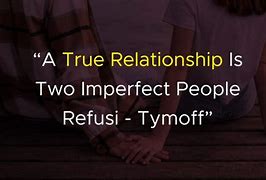I fear no one but respect everyone. – tymoff in a world often characterized by a relentless pursuit of power, status, and dominance, the statement “I fear no one, but respect everyone” stands as a beacon of balanced wisdom and profound strength. Attributed to Tymoff, this saying encapsulates a mindset that combines fearlessness with humility, asserting that true strength lies not in overpowering others but in acknowledging their intrinsic value. This article delves into the multifaceted layers of this philosophy, exploring its implications for personal development, leadership, relationships, and societal cohesion.
Understanding Fearlessness I fear no one but respect everyone. – tymoff
I fear no one but respect everyone. – tymoff as suggested by Tymoff’s statement, is not about the absence of fear but the mastery of it. It involves recognizing fears, understanding their origins, and confronting them with courage and rationality. In this context, fearlessness becomes I fear no one but respect everyone. – tymoffa state of mind where one is not paralyzed by the potential threats or challenges posed by others.
- Self-Confidence and Inner Strength: A I fear no one but respect everyone. – tymoff individual exudes self-confidence rooted in self-awareness and self-acceptance. They understand their strengths and weaknesses, allowing them to face external adversities without being overwhelmed. This inner strength is built through continuous self-improvement and resilience in the face of failures. I fear no one but respect everyone. – tymoff
- Rational Courage: Fearlessness is also marked by rational courage. It is the ability to assess risks logically and take calculated actions despite potential dangers. This is not recklessness but a measured approach to life’s uncertainties, allowing individuals to navigate complex situations with clarity and composure.
The Essence of Respect
Respect, on the other hand, is about recognizing and valuing the dignity and worth of every individual. It transcends superficial judgments and acknowledges the unique perspectives and experiences that each person brings to the table.
- Empathy and Compassion: I fear no one but respect everyone. – tymoff At its core, respect involves empathy – the ability to understand and share the feelings of others. This fosters compassion and a genuine concern for the well-being of others.I fear no one but respect everyone. – tymoff Respectful individuals listen actively and engage with others in a manner that honors their humanity. I fear no one but respect everyone. – tymoff
- Recognition of Diversity: Respect is inherently linked to the recognition and appreciation of diversity. It involves valuing different cultures, beliefs, and ideas, and understanding that these differences enrich human experience. This perspective promotes inclusivity and reduces prejudice and discrimination.
I fear no one but respect everyone. – tymoff Integrating Fearlessness and Respect in Personal Development
Personal development is significantly enhanced by integrating fearlessness and respect into one’s character. This balanced approach fosters a holistic growth that is both empowering and ethically sound. I fear no one but respect everyone. – tymoff
- Building Authentic Relationships: Fearlessness enables individuals to engage in authentic relationships without the barriers of insecurity and mistrust. Respect ensures these relationships are nurtured with mutual understanding and appreciation, leading to deeper and more meaningful connections.
- Effective Communication: Fearlessness in communication means expressing oneself honestly and assertively. Coupled with respect, this ensures that while one’s voice is heard, it is also considerate of others’ viewpoints. This combination enhances dialogue and reduces conflicts.
- Personal Integrity: Integrating fearlessness and respect cultivates personal integrity. Fearlessness supports adherence to one’s principles and values even in the face of opposition. Respect ensures that these principles are applied in a manner that honors the rights and feelings of others. I fear no one but respect everyone. – tymoff
Fearlessness and Respect in Leadership
In leadership, the amalgamation of fearlessness and respect is a hallmark of transformational leadership. It drives leaders to inspire and motivate others while maintaining ethical standards and fostering a positive organizational culture.
- Inspirational Leadership: Fearless leaders are visionary and take bold steps towards achieving goals. They are not deterred by challenges and are willing to venture into uncharted territories. Respectful leaders, on the other hand, inspire trust and loyalty by valuing their team members, encouraging collaboration, and recognizing contributions.
- Conflict Resolution: Leaders who embody fearlessness and respect are adept at conflict resolution. They approach conflicts with the courage to address issues head-on and the respect to consider all parties involved. This leads to fair and constructive outcomes.
- Empowering Others: Such leaders empower others by fostering a culture of mutual respect and trust. They encourage innovation and creativity by allowing team members to express their ideas without fear of ridicule or retribution. This creates an environment where everyone feels valued and motivated to contribute their best.
The Role of Fearlessness and Respect in Relationships
Healthy relationships, whether personal or professional, thrive on the foundations of fearlessness and respect. These qualities ensure that interactions are balanced, enriching, and sustainable.
- Trust and Loyalty: Fearlessness in relationships means being open and honest, fostering trust. Respect ensures that this honesty does not hurt or demean the other person, thereby strengthening loyalty and mutual commitment.
- Support and Growth: Relationships anchored in fearlessness and respect provide a supportive environment for personal growth. Partners or colleagues encourage each other to take risks and pursue their goals, knowing that they have a foundation of respect to fall back on.
- Conflict Management: In relationships, fearlessness allows individuals to address issues directly and assertively. Respect ensures that these discussions are conducted with empathy and consideration, leading to resolutions that are satisfactory to all parties involved.
Societal Implications of Fearlessness and Respect
On a broader scale, the principles of fearlessness and respect can significantly impact societal cohesion and progress. They promote a culture of peace, understanding, and collective advancement.
- Social Harmony: A society that values fearlessness and respect is one where individuals can express themselves freely without fear of oppression or discrimination. This leads to social harmony and reduces incidences of conflict and violence.
- Civic Engagement: Fearlessness encourages active participation in civic duties and social causes. Respect ensures that this engagement is constructive and inclusive, taking into account the diverse needs and perspectives of the community.
- Progressive Change: Societal progress is often driven by individuals and groups who are fearless in challenging the status quo and advocating for change. Respect ensures that these efforts are not divisive but rather aimed at achieving equitable and just outcomes for all members of society.
Conclusion
The philosophy encapsulated by Tymoff’s statement, “I fear no one, but respect everyone,” is a profound guide for personal conduct and societal interaction. It emphasizes the importance of inner strength and self-assurance while advocating for the recognition and appreciation of others’ intrinsic worth. By integrating fearlessness and respect into various aspects of life, individuals can achieve personal growth, foster healthier relationships, lead more effectively, and contribute to a more harmonious and progressive society. This balanced approach not only empowers individuals but also nurtures a culture of mutual respect and collective advancement.
4o



